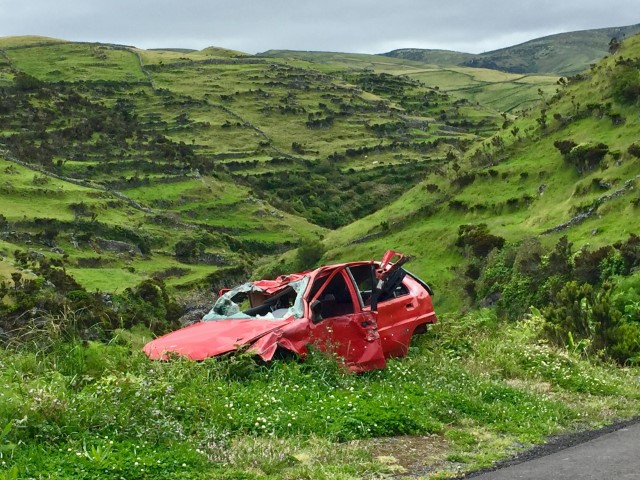 Taking a solo road trip? That’s thrilling and exciting. You get to decide the entire trip, be it the destination or the nitty-gritty of your itinerary. You also get to meet new people and learn new things about yourself. But solo road travel has its own perils.
Taking a solo road trip? That’s thrilling and exciting. You get to decide the entire trip, be it the destination or the nitty-gritty of your itinerary. You also get to meet new people and learn new things about yourself. But solo road travel has its own perils.
One of the greatest dangers of a solo road trip is car accidents. Unfortunately, about 43,000 fatal car crashes take place in the United States every year. They are the leading cause of death for people aged between 1 and 54 years.
What if you get in a car crash mid-way through your trip? The mere thought is nerve-wracking. The risk of car accidents is higher on road trips than on everyday travel due to speeding and unfamiliarity with the road.
Regardless of how cautiously you plan to drive, you must know what to do if you’re involved in a car crash. In this article, we’ll share some tips to help you navigate the unfortunate situation with ease.
#1 Prioritize Safety First
Your safety should be your priority when you’re involved in a car accident. Pull over to the side of the road or any other safe location, such as a nearby parking lot, to prevent further collisions. If moving the car isn’t possible due to the damage or the injuries you’ve sustained, you must move yourself to the side of the road.
Turn on the hazard light of your car to alert other drivers, especially if you’re on a busy road or a highway. Place flares, cones, or warning triangles if that is safe to do. These precautions will signal to oncoming traffic that there’s an accident ahead, reducing the risk of additional accidents.
#2 Document the Incident Thoroughly
Experiencing shock after a car accident—especially if it is not serious—is normal. The thought of being involved in a traffic crash makes people wonder, “what do I do after a car accident?” The answer is simple: document it.
Despite the stress and adrenaline, documenting the accident is important. Take pictures of the accident scene, the vehicles involved, and the damages incurred. Take photos from multiple angles. Make sure you also photograph the road conditions as well as relevant signals or signage.
Record a few videos in close-up shots, so you can show the severity of the impact. If you’re too injured to capture pictures and videos, ask a bystander to help you.
Frantz Law Group advises car accident victims to obtain the other driver’s car insurance and license information. Their detail will help you recover compensation for the damages sustained.
#3 Consult a Local Legal Professional
Whether the injuries or damages are severe, you must consult a local legal professional. Don’t wait to return to your state to contact an attorney there. The traffic and state laws surrounding car crashes differ from state to state. Only a local lawyer is well-versed in state laws. Naturally, they will provide accurate legal advice tailored to your situation.
Alabama, for instance, adheres to the contributory negligence rule. You cannot claim compensation for the damages sustained if you have played even the slightest role in causing the accident.
Meanwhile, Missouri follows the comparative negligence rule. You can recover damages even if you were partially at fault for the crash. However, your settlement is reduced by the degree of your fault.
A local legal professional can help you understand your rights and obligations. They will also guide you through the legal and insurance processes, ensuring you meet all necessary deadlines and file the correct paperwork.
Should the case escalate to a lawsuit, a local attorney can represent you in court. They will also gather evidence, interview witnesses, and build a strong case, so you can win fair compensation.
#4 Reconsider Your Travel Plans
Car accidents—whether a fender bender or severe collision—take a toll on the mental health of the victim. The psychological impact of the car crash might be even more significant for you since you’re traveling alone. It can affect your ability to enjoy the rest of your trip or make sound decisions on the road. That is why you must reconsider your travel plans.
You may continue to drive your car back to your city if the damage is minor and you aren’t severely injured. But you may have to arrange for repairs and seek alternative transportation if the damage is substantial.
Consider your physical and emotional state as well. Accidents can be traumatic. You might require some time to recover before resuming your trip. It’s okay to take a break and rest at a nearby hotel.
To wrap it up, nothing could be worse than getting involved in a car crash on a solo trip. But accidents can happen anywhere and at any time. Knowing how to respond can make all the difference.
Should you get involved in a traffic crash on a solo road trip, follow these tips to navigate the aftermath effectively. Taking these proactive measures will safeguard your well-being and help you protect your legal rights.










